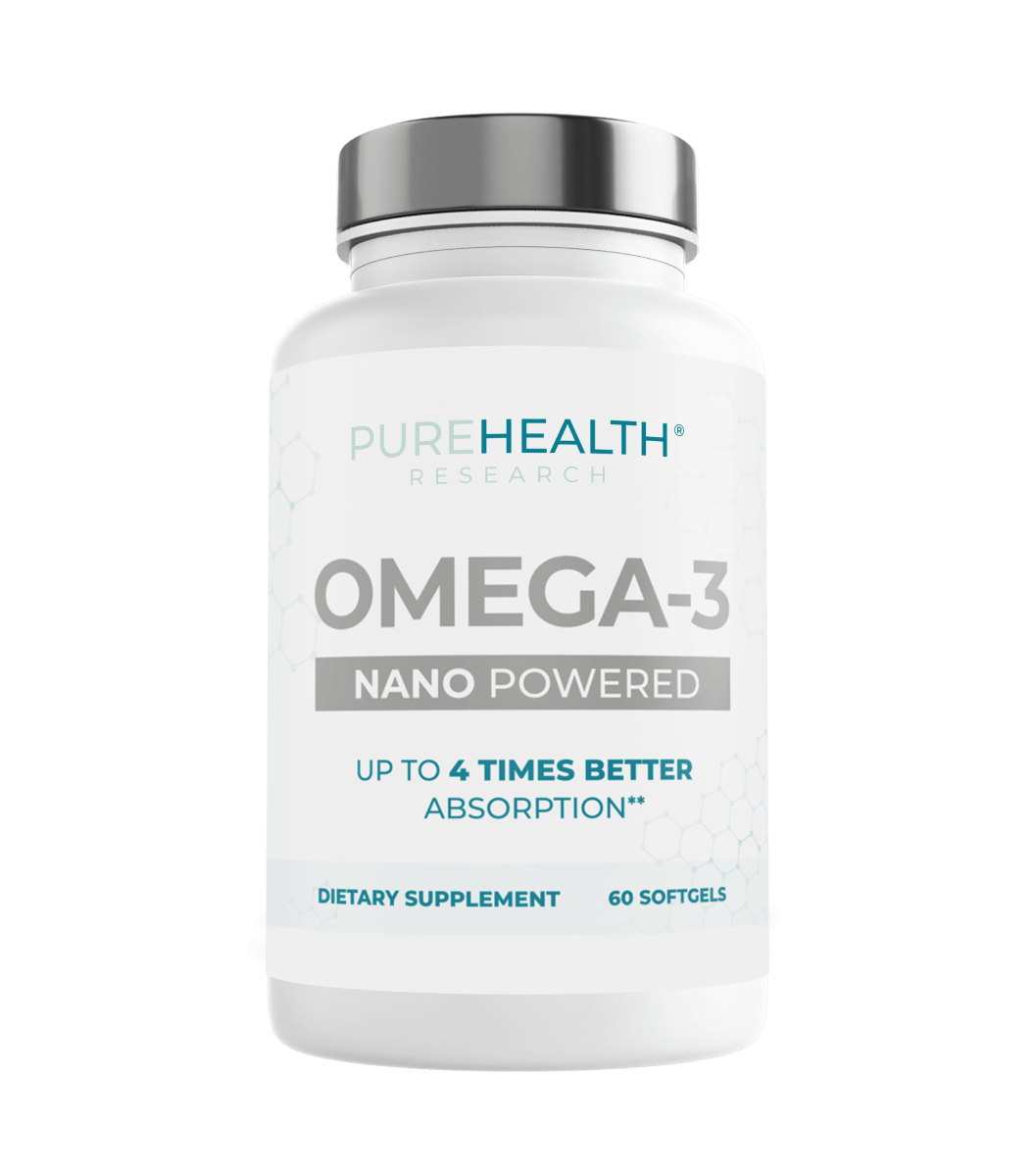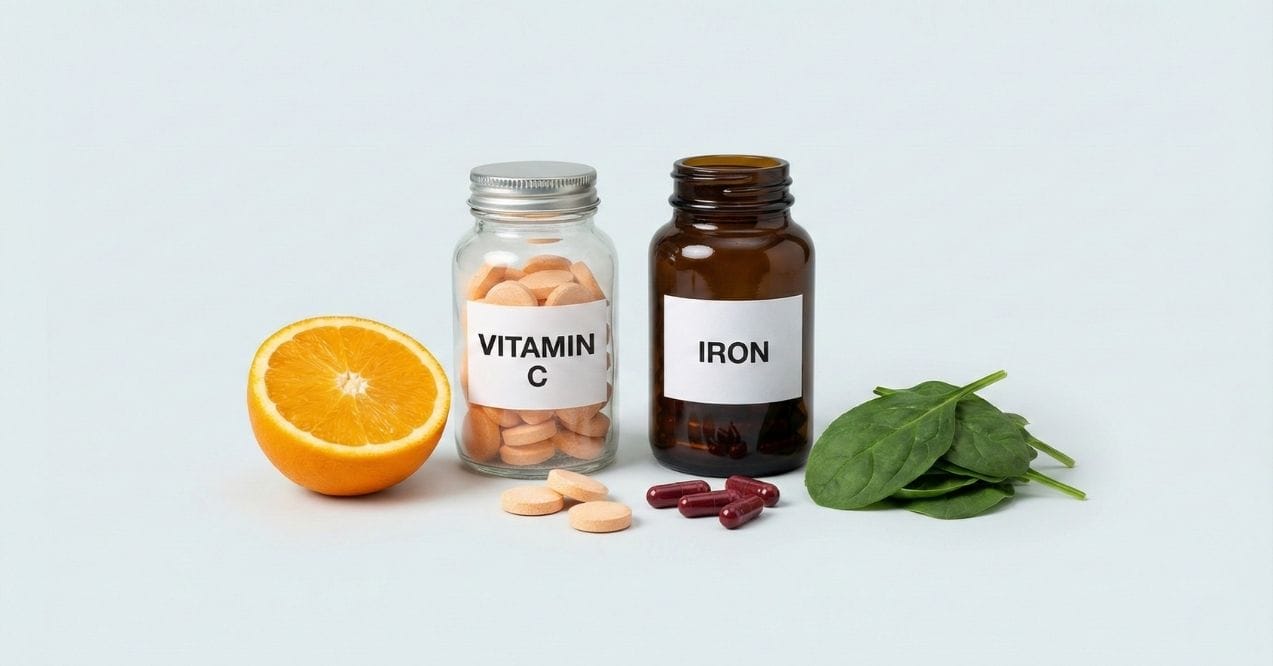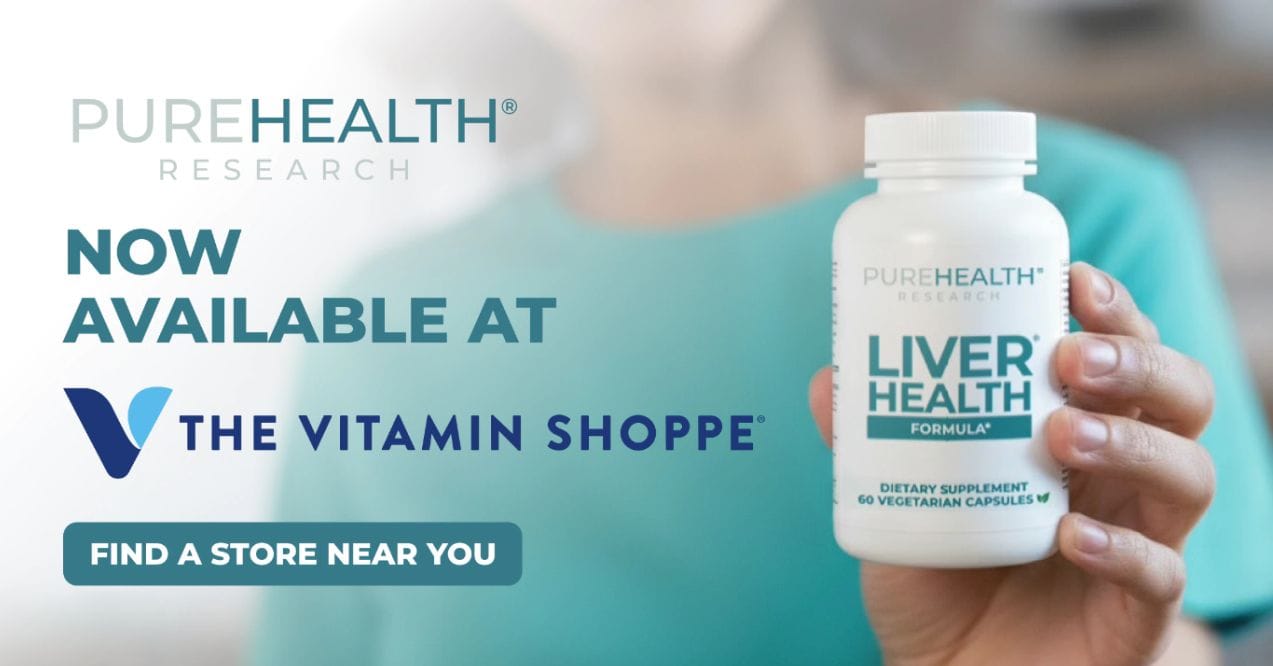5 Healthiest Non-Seed Oils (and Why They’re Better)
Transform your cooking with the healthiest non seed oils. Learn which traditional fats to choose and how to make the switch. Expert tips inside.
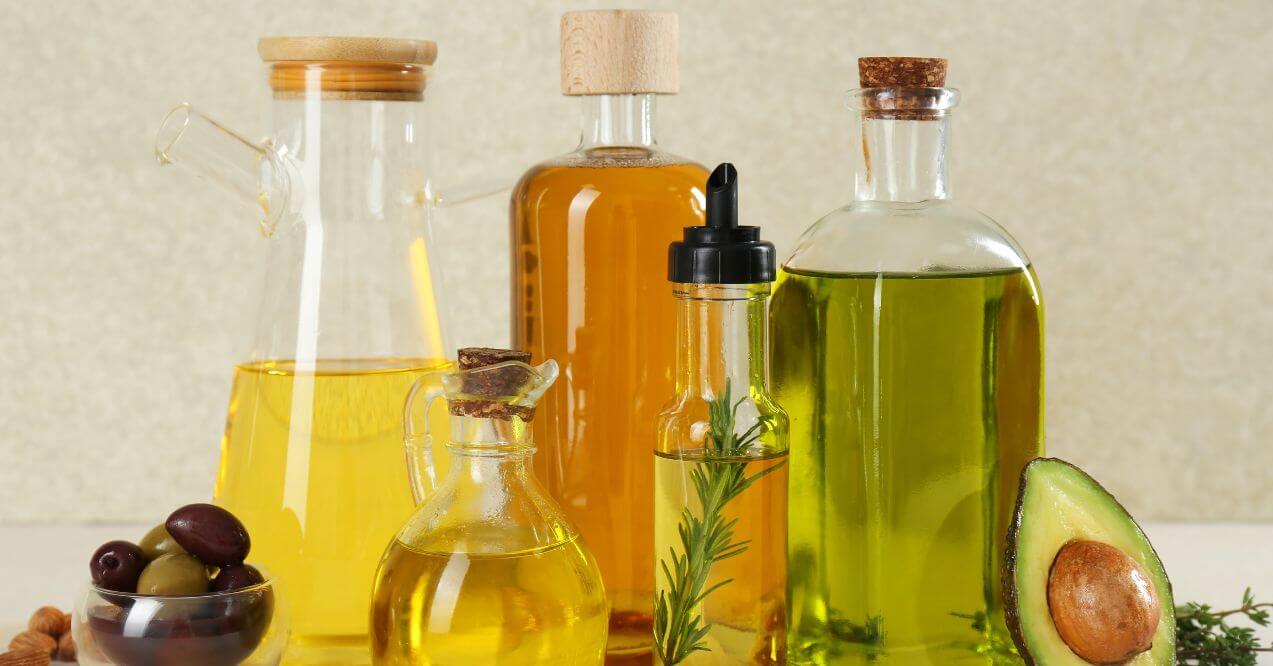

The fats we consume play a crucial role in our overall health, yet many people remain confused about which oils to choose. Recent research has sparked growing interest in non-seed oils as healthier alternatives to conventional cooking oils. While seed oils have dominated our kitchens for decades, many health-conscious individuals are now exploring traditional, less processed options.
In this guide, we’ll explore the healthiest non-seed oils and discover why they might be better choices for your daily cooking and food preparation. Whether you’re looking to revitalize your energy levels or support your long-term health, understanding these natural fat sources can help you make more informed decisions in the kitchen.
The Seed Oil Problem
Most people don’t realize that many modern cooking oils didn’t exist until the 20th century. Here’s why the list of seed oils to avoid continues to grow among health-conscious consumers:
- Highly Processed – Industrial oils including soybean, canola, corn, sunflower, and safflower undergo intense processing with high heat and chemical solvents. This harsh treatment can alter their molecular structure and reduce their nutritional value.
- Extensive Chemical Treatment – Traditional fats like olive oil simply require pressing, but seed oils need extensive processing to become edible. They go through bleaching, deodorizing, and other chemical treatments before reaching your kitchen.
- Omega Balance Disruption – While omega-6 fatty acids play important roles in your body, the modern diet provides these fats in unprecedented quantities – largely through seed oils. This abundance can disrupt the natural balance with omega-3 fatty acids, leading to widespread deficiency patterns that vary significantly by region (read more about recent omega-3 deficiency maps for current figures in your area).
- Heat Sensitivity – Some research suggests that exposure to high heat may alter the structure of certain oils. Choosing stable oils like coconut or avocado oil can help maintain their intended properties during cooking. Unlike more stable fats such as coconut oil or olive oil, seed oils don’t hold up well under high temperatures.
What Makes a Fat “Healthy”?

Understanding what makes a fat beneficial for your well-being helps you make informed choices about seed oil substitutes. Here are the key characteristics that define a healthy fat:
- Natural Processing – The less processing, the better. Quality fats go through minimal steps, like simply pressing olives or churning cream into butter. This gentle approach keeps all their natural goodness intact.
- Heat Stability – A good fat stays stable when you cook with it, meaning it doesn’t break down under heat. This makes it safer to use in your everyday cooking, whether you’re sautéing vegetables or baking.
- Fatty Acid Balance – The best fats contain a natural mix of fatty acids. For example, olive oil is rich in monounsaturated fats, while coconut oil offers beneficial saturated fats. Your body needs this variety to work at its best.
- Pure and Simple – Quality fats don’t need extra ingredients to stay fresh. They remain stable on their own without any artificial additives.
These guidelines can help you pick the best fats for your kitchen, making it easier to cook delicious, wholesome meals that support your health.
The Five Healthiest Non-Seed Oils
When exploring what oils are not seed oils, you’ll find a diverse range of traditional fats that offer both flavor and nutritional benefits. These healthiest non-seed oils have been kitchen staples across cultures for centuries, each bringing its unique properties to your cooking. Let’s explore these versatile alternatives.
1. Olive Oil

As a popular seed oils alternative, olive oil stands out for its versatility and rich Mediterranean heritage. This golden elixir offers a range of flavors, from mild and buttery to robust and peppery, depending on its variety and harvest timing.
Extra virgin olive oil shines best in salad dressings, as a finishing drizzle, or in low to medium-heat cooking. Its gentle, fruity notes enhance everything from roasted vegetables to pasta dishes. For everyday cooking, choose light or regular olive oil, which handles heat better while still offering beneficial compounds.
Quality matters – look for oils in dark bottles and with a harvest date, storing them away from heat and light to preserve their fresh taste and beneficial properties.
2. Avocado Oil
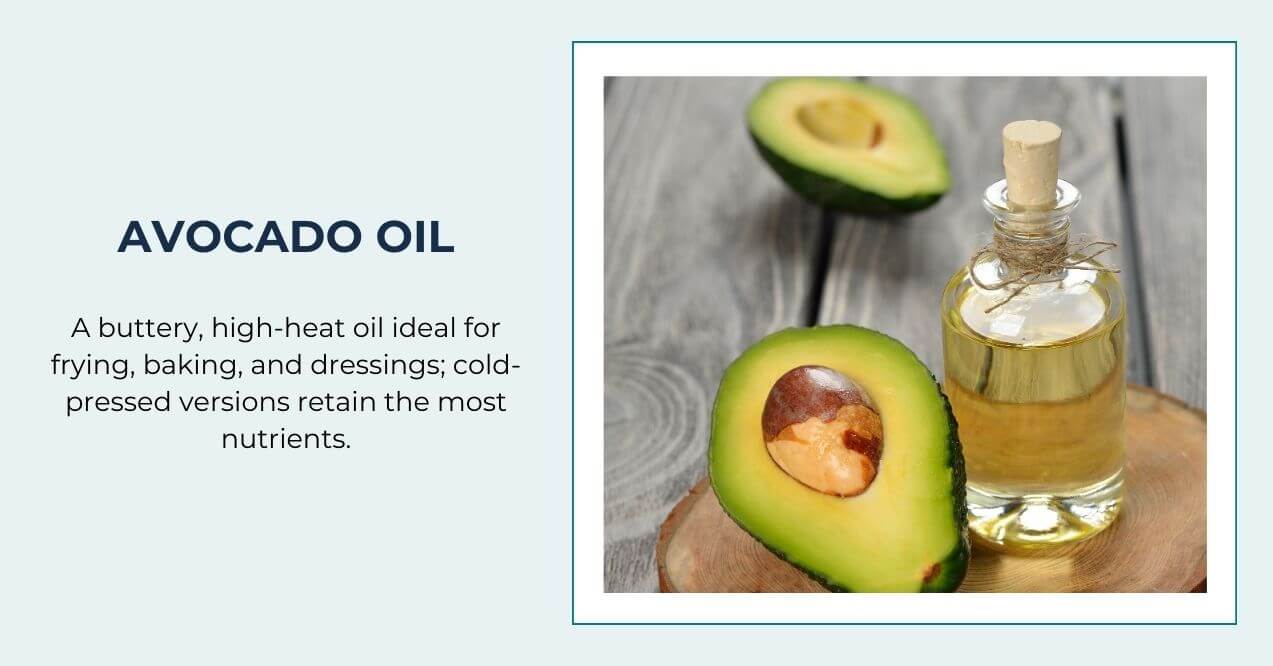
Avocado oil brings a smooth, buttery flavor with subtle grassy notes to your cooking. This versatile oil has gained popularity for its remarkable stability at high temperatures, making it perfect for stir-frying, searing, and even deep frying up to 500°F (260°C).
Its neutral taste makes it an excellent choice for both cooking and baking. You can use it to make homemade mayonnaise, drizzle it over roasted vegetables, or add it to smoothies for extra richness. When shopping, choose cold-pressed, unrefined versions for the most natural form.
The light taste won’t overpower your dishes, letting other flavors shine while adding a silky texture to your creations.
3. Coconut Oil

As one of the popular alternatives to seed oils, coconut oil offers a distinct tropical sweetness that adds character to both sweet and savory dishes. Unrefined versions provide a noticeable coconut flavor, while refined options offer a more neutral taste.
Beyond its culinary uses, coconut oil is also a staple in beauty and skincare. Like castor oil for wrinkles, coconut oil is known for its deep moisturizing properties, helping to keep skin hydrated and smooth. Both oils are widely used in natural beauty routines to maintain skin elasticity and support overall skin health.
Choose virgin coconut oil for the most natural option, and store it in a cool place where it can maintain its fresh qualities.
4. Butter and Ghee
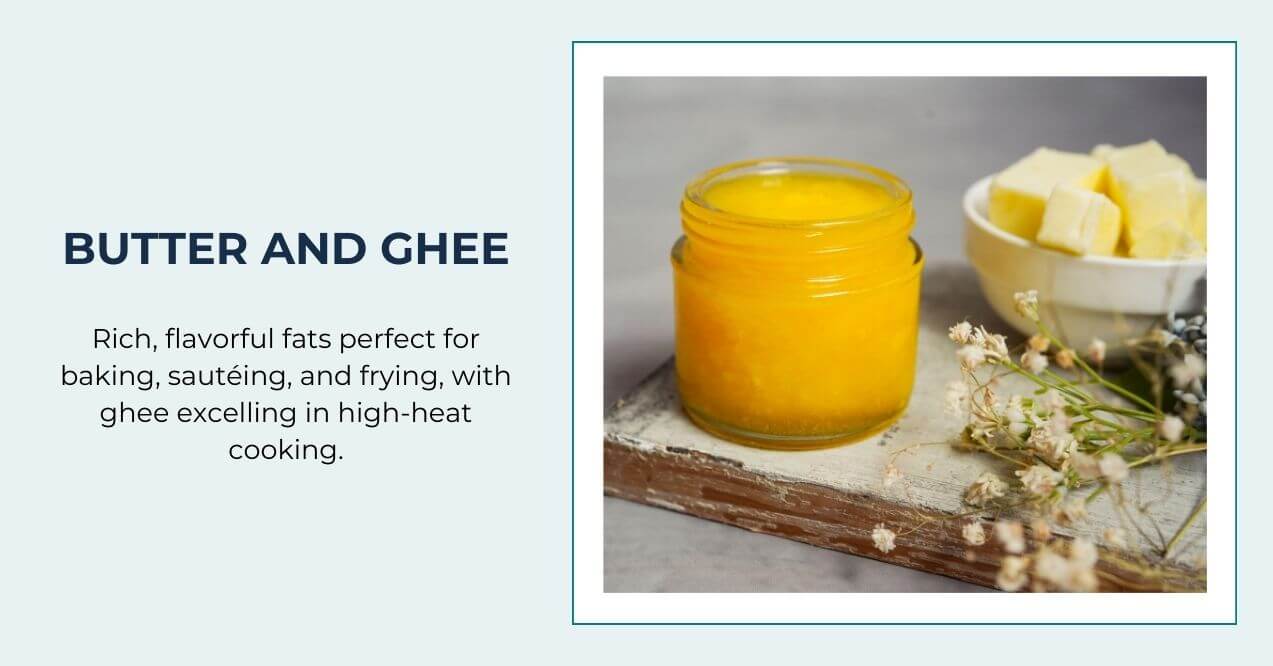
These golden fats bring unmatched richness and depth to your cooking. Butter offers that classic, creamy taste we all know, while ghee (clarified butter) provides a deeper, nuttier flavor profile. Both add a luxurious touch to any dish.
Ghee works particularly well for high-heat cooking since the milk solids have been removed. It’s perfect for sautéing vegetables, frying eggs, or adding richness to warm beverages. Regular butter shines in baking and low-heat cooking, creating irresistible flavors in everything from morning toast to pasta dishes.
Choose grass-fed options when possible for the best flavor and nutritional profile.
5. Animal Fats
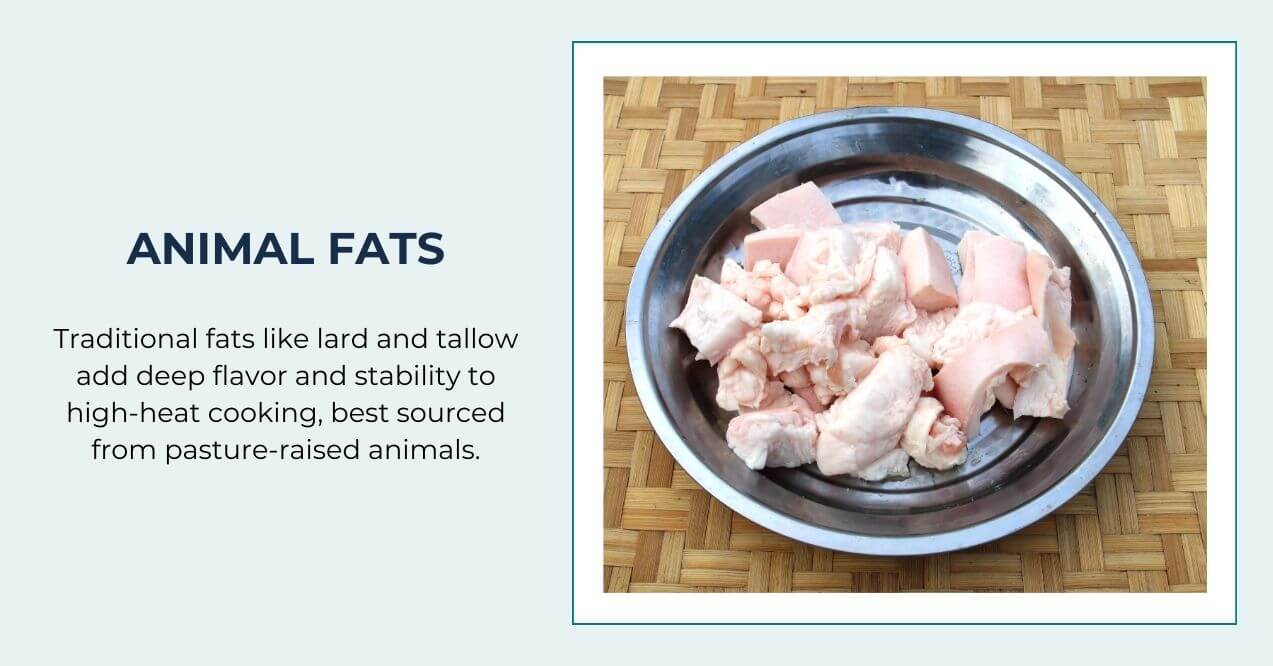
Traditional non seed oils like lard, tallow, and duck fat have been making a comeback in modern kitchens. These fats offer incredible depth of flavor and remarkable stability at high temperatures, making them ideal for roasting, frying, and sautéing.
Each type brings its own character: duck fat adds sophistication to roasted potatoes, lard makes the flakiest pie crusts, and beef tallow creates the crispiest French fries. Their high smoke points make them excellent choices for high-heat cooking methods.
Source these fats from pasture-raised animals when possible, and store them properly to maintain their quality.
Choosing Supplements Like Omega 3
Every cell in your body needs omega-3 fatty acids to function properly. These essential fats play key roles in supporting brain function, heart health, and maintaining overall well-being. Regular consumption of omega-3s helps maintain healthy inflammatory responses and supports cellular health.
While whole food sources provide excellent nutrition, modern lifestyles don’t always allow for regular consumption of omega-3 rich foods. Quality supplements can help support your healthy fat intake, especially when transitioning away from seed oils.
For those who don’t regularly enjoy fatty fish like salmon or mackerel, Nano Powered Omega 3 offers a convenient and efficient way to maintain optimal intake of these important nutrients.

Endorsed by Dr. Holly Lucille, ND, RN, this innovative supplement uses nanotechnology to reduce DHA and EPA molecules into millions of tiny particles – imagine turning one drop of water into a fine mist. Your body can absorb these smaller particles more efficiently, similar to how a dry sponge soaks up water. This smart approach means you can get better results from taking less.
Hidden Sources of Seed Oils in Processed Foods
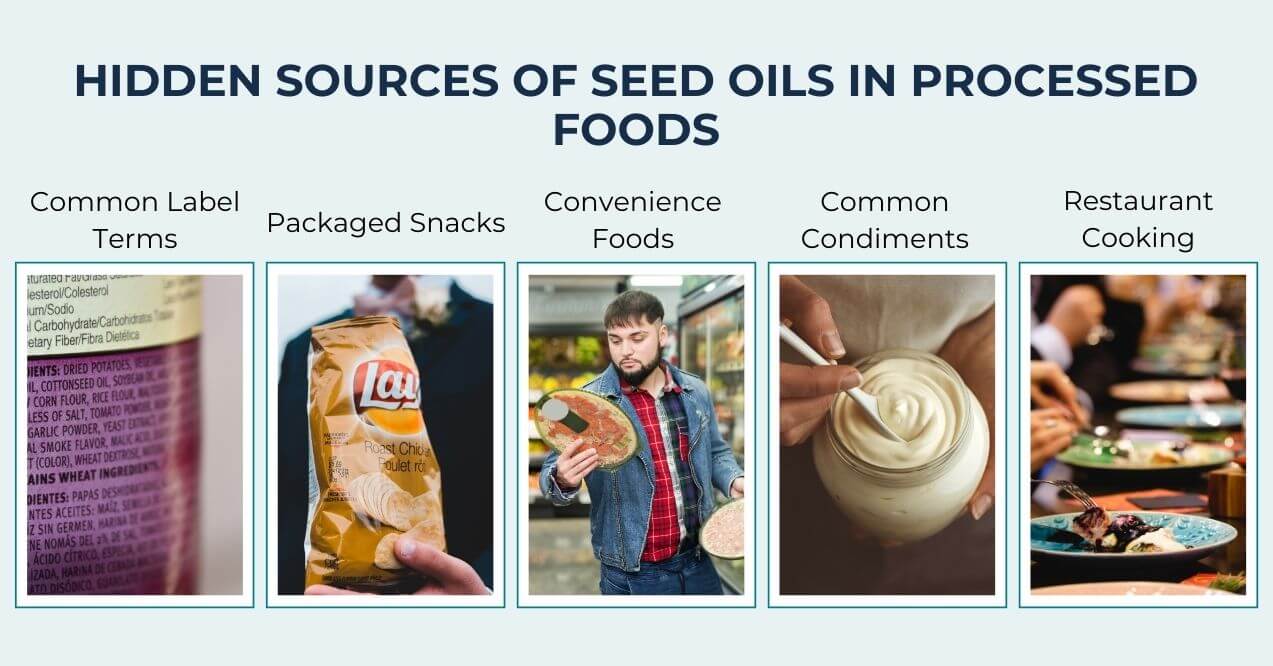
Reading food labels takes on new importance when you’re trying to avoid seed oils. Many everyday products contain these oils, often hidden behind various names on ingredient lists.
- Common Label Terms – Watch for ingredients like “vegetable oil,” “plant oils,” or “shortening.” These generic terms usually indicate the presence of soybean, canola, or corn oils. Even terms like “natural oils” can mask the presence of highly processed seed oils.
- Packaged Snacks – Most crackers, chips, and other crunchy snacks are made with or fried in seed oils. Even seemingly healthy options like vegetable chips often contain these oils.
- Convenience Foods – Ready-made meals, frozen dinners, and packaged baked goods, including bread and cookies, typically use seed oils for longer shelf life and lower production costs.
- Common Condiments – Store-bought salad dressings, mayonnaise, and many sauces rely heavily on seed oils as their base ingredient.
- Restaurant Cooking – Many restaurants use seed oils for cooking and frying due to their lower cost. This includes most fast-food chains and many sit-down establishments.
The good news? More companies now offer alternatives made with olive oil, avocado oil, or coconut oil. Reading labels carefully helps you make informed choices about the fats in your food.
A Practical Guide to Making a Switch
Making the transition to non seed oils doesn’t have to feel overwhelming. You can choose either a step-by-step approach or make the switch all at once – both methods can work well depending on your lifestyle.
- Start in Your Kitchen – Begin by replacing one oil at a time. Start with your everyday cooking oil, then gradually swap out others as you run out. Choose olive oil for everyday cooking, avocado oil for high-heat needs, and coconut oil for baking.
- Stock Your Pantry – Keep a variety of healthy fats on hand: butter for spreading and baking, ghee for high-heat cooking, and olive oil for dressings and marinades. This makes healthy cooking more convenient.
- Dining Out Tips – Many restaurants now accommodate special requests. Don’t hesitate to ask what oils they use for cooking. Choose dishes that are typically made with olive oil, like Mediterranean options, or request butter instead of vegetable oil.
- Simple Swaps – Make your own salad dressings with olive oil, prepare homemade mayonnaise with avocado oil, or use butter for baking instead of vegetable shortening.
Just as learning how to use tea tree oil effectively enhances its benefits in personal care, understanding the right ways to cook with non-seed oils can help you make the most of their nutritional value. Making small changes in both your diet and lifestyle can have a lasting impact on your health.
Key Takeaways
Making informed choices about cooking oils can significantly impact your daily well-being. The healthiest non seed oils – like olive oil, avocado oil, coconut oil, and traditional animal fats – offer both flavor and nutritional benefits that have stood the test of time.
While completely avoiding seed oils might seem challenging at first, the transition becomes easier with simple, practical steps. Start by making mindful switches in your kitchen, reading labels carefully, and choosing restaurants that use quality cooking fats.
Remember, every small change counts. Whether you’re drizzling olive oil over a salad or cooking with grass-fed butter, you’re making positive choices that support your health and enhance your meals’ natural flavors.
No, avocado oil is not a seed oil. It’s extracted from the pulp (flesh) of avocados, making it a fruit oil similar to olive oil, which comes from the flesh of olives.
Yes, beef tallow is an excellent alternative to seed oils. It’s a stable cooking fat with a high smoke point, making it ideal for high-heat cooking and deep frying while providing beneficial nutrients.
Common seed oils include soybean, canola (rapeseed), sunflower, safflower, corn, cottonseed, and grapeseed oil. These oils typically require extensive processing to become edible.
The top three cooking oils to minimize are soybean oil (often labeled as “vegetable oil”), canola oil, and corn oil, as these undergo heavy processing and are less stable when heated.
Omega-6s are essential fatty acids, but modern diets often contain too much compared to omega-3s. This imbalance largely comes from increased seed oil consumption in processed foods.
The research is still developing. While some studies suggest that high consumption of processed seed oils may support inflammatory responses in the body, more research is needed for definitive conclusions.
Sign up for our Healthy Living newsletter!
Advertisement. This site offers health, wellness, fitness and nutritional information and is designed for educational purposes only. You should not rely on this information as a substitute for, nor does it replace, professional medical advice, diagnosis, or treatment. If you have any concerns or questions about your health, you should always consult with a physician or other health-care professional. Do not disregard, avoid or delay obtaining medical or health related advice from your health-care professional because of something you may have read on this site. The use of any information provided on this site is solely at your own risk.
